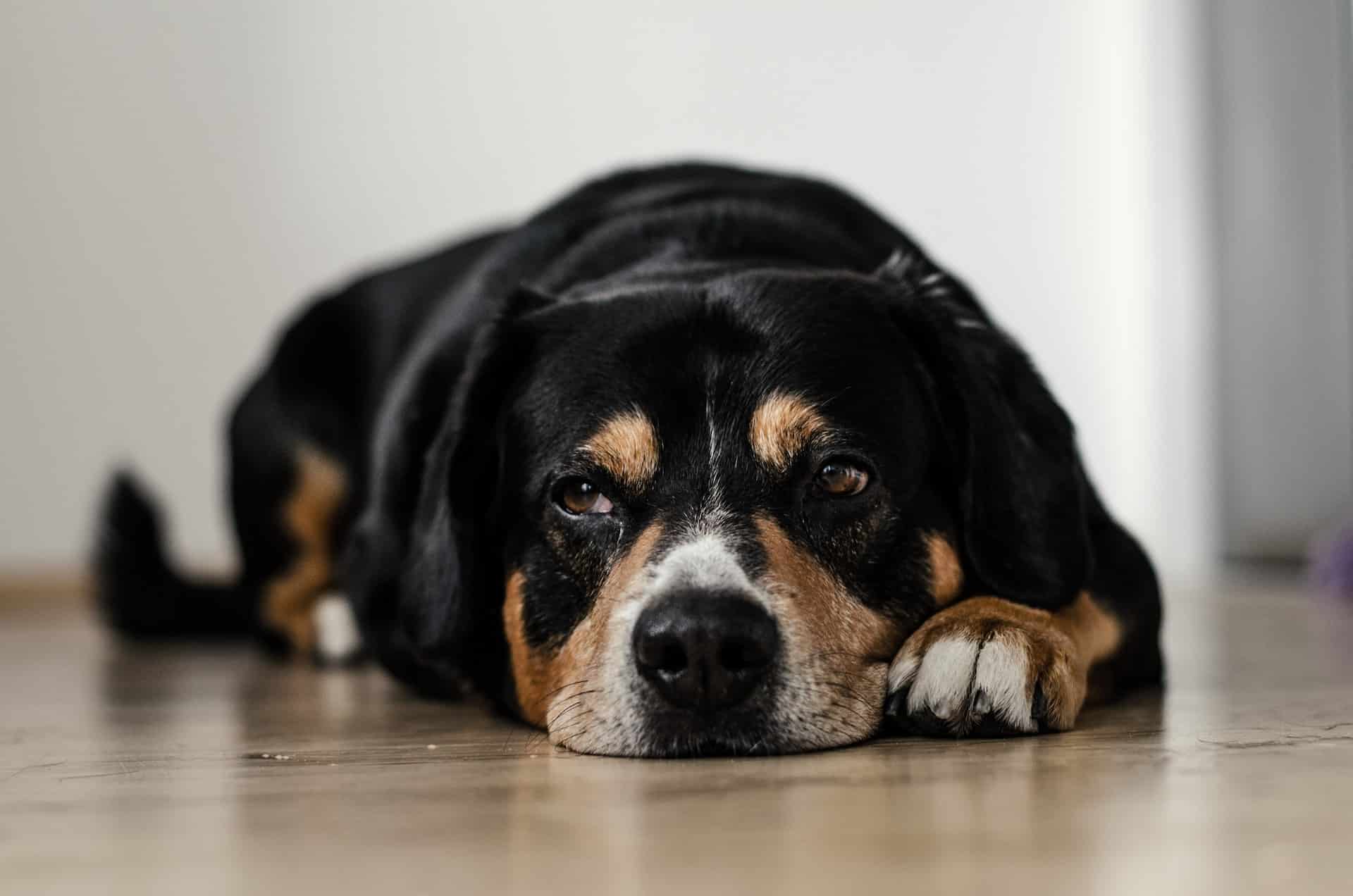- Pet Disease, Pet Health

Is Your Dog Getting Older? Or Does Your Dog Have Doggy Dementia?
Dogs are part of the family. Throughout the years your dog has always been there to bring you tons of happiness, joy, love and emotional support. As your dog ages, you may find that the relationship changes and that your dog increasingly requires additional care. If you find yourself in that position, I am right there with you. My old dog, Dan (the reason I started this company) just had back surgery for a disc protrusion and in the last few days started seizuring. We’re working him up now, with the hope that he does not have a brain tumor.
Larger dogs age at a faster rate relative to smaller dogs. For example, a great Dane may be considered geriatric at age 6 while a Chihuahua has barely reached Idle-age. We have created a dog age calculator because the myth that you can just multiply your dog’s age by 7 isn’t accurate.
The REAL question is how can you tell if your dog is simply showing signs of normal aging or if your dog is experiencing doggy dementia or what your veterinarian may refer to as canine cognitive dysfunction or CCD. CCD is very similar to Alzeimers disease in humans. Most dog owners don’t know the signs of doggy dementia. Doggy dementia can be extremely challenging for the pet because they tend to suffer in silence. Pet owners tend to suffer as well because their once active pet may begin sleeping during the day and bark and pace all night. These signs can certainly put a strain on the entire household.
The estimated prevalence of CCD generally varies between 14% and 35% of the pet dog population but is probably much higher.
Signs that your dog is getting old:
- reduced appetite
- increased drinking (which may indicate diabetes, liver/kidney failure)
- bad breath
- weight loss
- skin lumps/bumps
- lethargy
- exercise intolerance
- increased tiredness (which may be associated with hypothyroidism or numerical other causes)
- coughing (which may be related to heart or lung disease)
- difficulty urinating or defecating
- generally “slowing down”
Common symptoms of doggy dementia include:
- Inappropriate barking (especially at night)
- Urinating or defecating in inappropriate areas
- Forgetting how to do normal tasks
- Untriggered anxiety
- Sleeping more during the day but becomes active and may pace and vocalize at night
- Decreased motor skills
- Stops interacting with family members owner or other pets
Take this 5 minute doggy dementia survey to see if your dog has doggy dementia. It will also help you determine the severity of the disease.
What can be done to help dogs with doggy dementia?
Diets enriched with carnitine, lipoic acid, long-chain omega-3 polyunsaturated fatty acids,vegetable-based carotenoids,vitamin E, and vitamin C and medium chain triglycerides (MCTs) may also be beneficial. Exercise and environmental enrichment may also be of benefit.
CogniCaps by Dr. Fossum’s Pet Care has helped numerous dogs with dementia. Please give it a try. Here’s a coupon (COGNI25%) for 25 percent off your first order.
Share this post:
CogniCaps – Canine Cognitive Function Supplement
$59.99 – $109.99 — or subscribe and save 15% Select options



